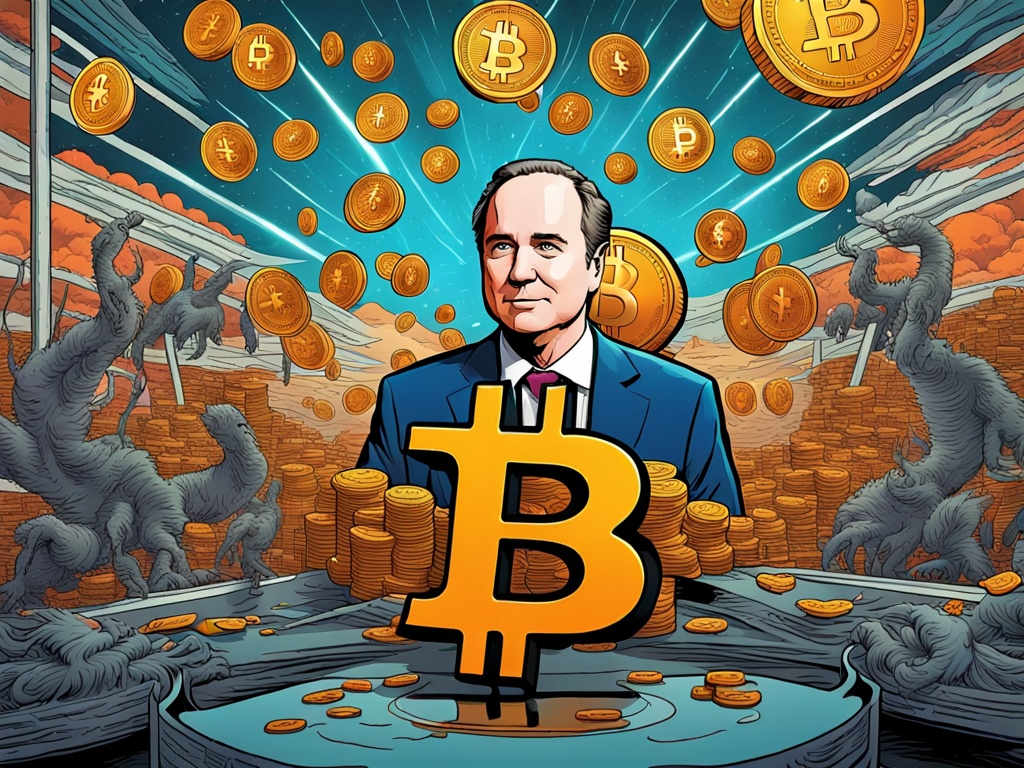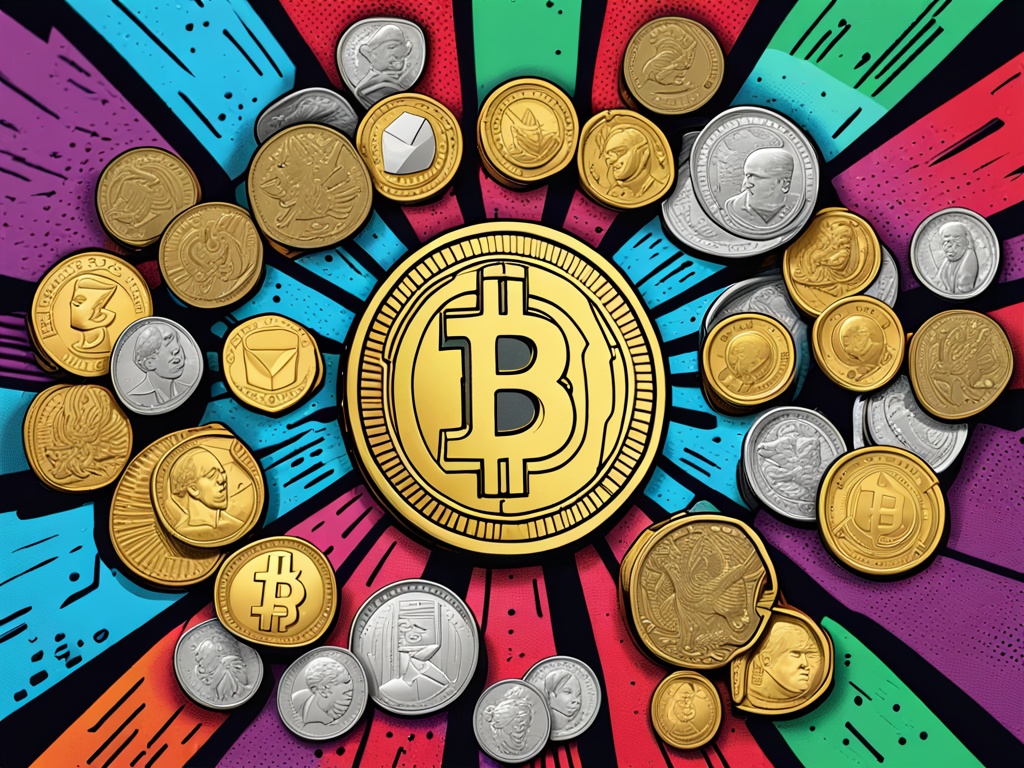Is Embracing Bitcoin a Boon or a Bane for America’s Economy?
When it comes to discussing Bitcoin and its impact on the economy, opinions can get as heated as a summer barbecue left out in the sun. Recently, Peter Schiff—a well-known critic of Bitcoin—took to social media to voice his concerns about the potential consequences of the U.S. embracing Bitcoin under Trump’s leadership. This conversation brings various perspectives to the table, which can be great for potential investors like yourself to navigate the crypto landscape.
Key Takeaways:
- Peter Schiff argues that embracing Bitcoin could undermine the U.S. economy.
- Current institutional interest, exemplified by firms like MicroStrategy, reflects a growing acceptance of crypto.
- Schiff’s negative outlook leads to significant community backlash among crypto enthusiasts.
- The debate continues over whether Bitcoin serves as a true store of value.
The Economic Risks: Are We Dropping the Ball?
Peter Schiff claimed, quite dramatically, that if America becomes a “Bitcoin superpower,” it could actually weaken the economy. He believes that by funnelling investment into Bitcoin and crypto projects, Wall Street is making a misstep—one that could skew capital allocation and lead to disastrous consequences. Schiff’s take is that focusing too heavily on Bitcoin is a distraction from other crucial areas of the economy, and it might lead to so-called “value-destroying” investments.
Now, before you roll your eyes, let’s consider some aspects. With Bitcoin making headlines and its price hitting new highs—especially with more institutional players like MicroStrategy investing heavily—it’s hard to ignore the allure. MicroStrategy has amassed a whopping 386,000 Bitcoin, worth about $35 billion. Impressive, right? But Schiff tosses cold water on that fire, predicting a “bloodbath” for companies heavily invested in Bitcoin, citing them as overvalued.
The Store of Value Debate: Is Bitcoin Just a Gamble?
Schiff is insistent that Bitcoin isn’t the gold standard it’s often touted as. Instead, he argues it’s a gamble driven mainly by FOMO—fear of missing out. You know that feeling when you see everyone raving about the latest blockbuster movie? Imagine thinking, “What if I miss out and it’s actually amazing?” That’s essentially the mentality he says drives Bitcoin purchases. For Schiff, holding Bitcoin doesn’t equate to wealth preservation; it’s simply a bet on a rising price.
Whoa! That sounds a bit intense, right? But take a step back. While Schiff may have a point, it also raises legitimate concerns. What happens when the market corrects itself? Price swings in Bitcoin have made many investors feel the riptide of volatility. This inherent risk is one to take seriously, especially if you’re considering diving into crypto as part of your investment strategy.
Community Responses: A Firestorm of Feedback
Unsurprisingly, Schiff’s comments ignited a backlash from the crypto community. Some enthusiasts questioned his understanding of monetary concepts, while others had a good laugh, deeming his take one of the “dumbest posts ever.” His critics think he’s outdated when it comes to understanding the growth and versatility of Bitcoin. It feels almost like a sports rivalry: fans passionately defending their favorites against naysayers.
The backlash against Schiff is more than just Twitter drama. It reflects a broader divide in opinions about Bitcoin’s role in our economic future. If you’re considering investing, understanding both sides of the conversation is key. Are you leaning towards the traditional views held by Schiff and similar critics, or do you find yourself resonating with the crypto community’s more optimistic view?
Schiff’s Warning: Hyperinflation Ahead?
Shifting gears, let’s talk about another critical warning from Schiff. He suggests that if the U.S. takes strategic steps to create a Bitcoin reserve, it could lead to hyperinflation! Yikes! That’s the kind of doomsday scenario that sends chills down an investor’s spine. If the government starts buying Bitcoin and prices skyrocket, what does that mean for the value of the dollar? Schiff believes that the government might end up printing more money to support those crypto purchases, which could spiral into a hyperinflation situation.
Now, while that sounds daunting, it’s essential to critically analyze how realistic this is. Bitcoin’s volatility and inconsistency compared to gold could lead to serious economic ramifications, according to Schiff. If you’re venturing into crypto investments, it makes sense to keep one eye on macroeconomic factors that could influence your investments.
In Conclusion: What’s Next for Investors?
So, where does that leave you as a potential investor? The conversation about Bitcoin’s role in our economy is multifaceted, with striking arguments on both sides. Peter Schiff raises serious concerns that shouldn’t be brushed aside. But there are equally compelling discussions about Bitcoin’s potential for growth and the advantages of being a part of this new financial revolution.
Before you take the plunge into investing in Bitcoin or any other cryptocurrency, it could be wise to do your homework. Reflect on whether you believe in the cryptocurrency’s promise of transforming finance or if you resonate more with the skeptics’ fears of impending economic doom.
Are you ready to dive into the ocean of cryptocurrency, or will you stick to safer shores? What elements do you think will shape the future of crypto investments?





 By
By
 By
By
 By
By
 By
By

 By
By